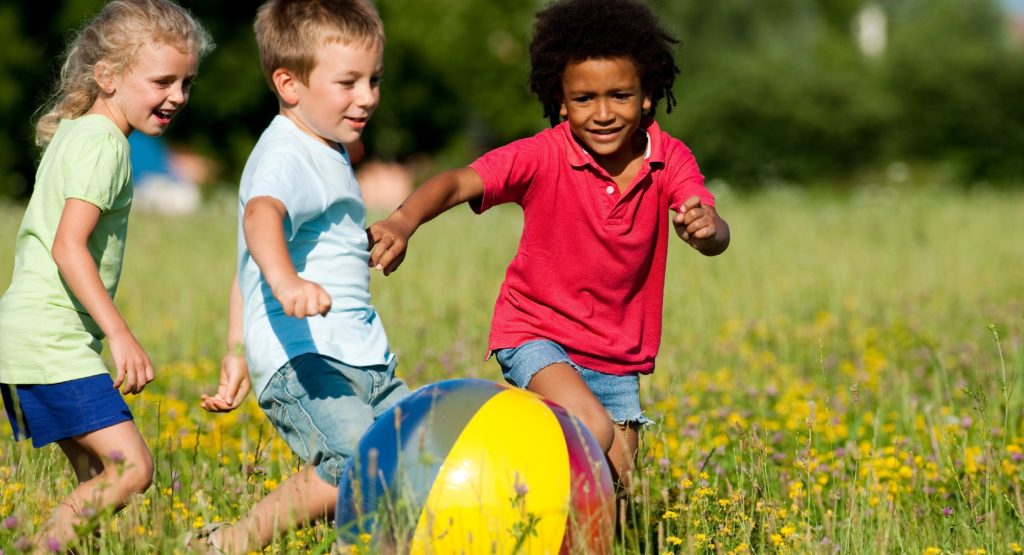At Rising Stride, we believe in nurturing the growth and development of your little ones, not only through education but also through physical activity. We understand that our preschoolers are at a crucial stage of development, and one of the key elements in their holistic growth is engagement in physical activity. In our latest blog, we want to emphasize the importance of encouraging your children to get active and explore the world around them.
Healthy Habits Begin Early
Instilling a love for physical activity at a young age can set the foundation for a lifetime of health and wellness. Regular exercise helps children maintain a healthy weight, promotes strong bones and muscles, and supports overall physical health. It also plays a significant role in preventing various health issues, such as childhood obesity.
Cognitive and Emotional Development
Physical activity is not just about keeping the body fit; it also has a profound impact on cognitive and emotional development. Regular physical play enhances a child’s ability to concentrate, think, and learn. It stimulates the brain, helping with memory and problem-solving skills. Furthermore, it can boost a child’s self-esteem and self-confidence, which are essential for their overall emotional well-being.
Social Skills and Teamwork
Participating in group physical activities fosters teamwork and social skills. It teaches children how to interact with their peers, share, and communicate effectively. This early exposure to collaboration sets a strong foundation for their future relationships, both in and out of the classroom.
Unleash Creativity
Physical activities encourage children to be creative. Whether it’s building with blocks, creating art projects, or simply playing in the sand, these activities stimulate imagination and creativity. By engaging in active play, children learn to see the world through a different lens, fostering an innovative spirit that will serve them well throughout their lives.
Better Sleep and Stress Relief
Active children tend to have better sleep patterns. Physical activity can help them fall asleep faster and enjoy more restful nights, leading to better overall behavior during the day. Additionally, engaging in physical activities can be a wonderful way for your child to release pent-up energy and reduce stress.
Outdoor Exploration
At Rising Stride, we encourage outdoor play as much as possible. Exposure to the natural world helps children develop an appreciation for nature and a sense of wonder. Outdoor activities offer a unique sensory experience that indoor play cannot replicate. Whether it’s feeling the texture of leaves, watching birds, or splashing in puddles, nature offers endless opportunities for learning and growth.
Strong Bones and Muscles
Weight-bearing exercises, such as running, jumping, and resistance training, help stimulate bone tissue growth and increase bone density. Exercise also stimulates muscle fibers, leading to increased muscle mass and strength. Well-developed muscles support better posture and overall physical performance.
Coordination and Motor Skills
Exercise helps improve coordination, balance, and motor skills in children. Activities involving body movements challenge children to coordinate their muscles and movements effectively, promoting the development of neuromuscular connections and enhancing overall motor skills.
Mental and Emotional Well-Being
Exercise promotes positive mental health and emotional well-being. Physical activity stimulates the release of endorphins, the “feel-good” hormones, which reduce stress, anxiety, and symptoms of depression. Regular exercise also boosts self-esteem, improves body image, and promotes a positive self-perception.
What are the health benefits of exercise?
Exercise can be anything that makes children’s breathing faster and their heart beat quicker. Sitting less and exercising for 60 minutes a day (not necessarily at once) has many health benefits for children:
- They will develop healthy bones, muscles and joints.
- They will develop healthy heart and lungs.
- Their coordination, strength and muscle control will improve.
- They will maintain a healthy body weight.
- Their body will become more flexible.
- Their balance and posture will improve.
- Their brain will develop vital connections, leading to improved concentration and thinking skills.
- They are less likely to develop chronic diseases, such as heart disease and type 2 diabetes.
How can I encourage my child to be physically active?
- Choose activities your child likes and that are fun.
- Make sure your child tries a variety of activities.
- Build physical activity into your child’s day by walking to school, washing the car or helping in the garden.
- Reward your child with an activity like a visit to the park rather than with screen time.
- Praise and encourage your child when they are being active.
- Be active yourself and involve the whole family.
Lifelong Habits
The habits your child forms during their preschool years can influence their choices as they grow older. By making physical activity a regular part of their routine now, you’re helping to establish a positive habit that can last a lifetime. The skills and values they learn through physical activity at a young age will serve them well in the future.
We encourage you, as parents, to take an active role in engaging your children in physical activities outside of school hours. Whether it’s playing in the park, taking a nature walk, or participating in sports, the benefits are immeasurable. Your involvement and encouragement can make all the difference in fostering a love for physical activity in your little ones.
Remember, childhood is a time for exploration, play, and growth, and physical activity is an integral part of this journey. Let’s work together to ensure that our preschoolers lead active, healthy, and happy lives.

